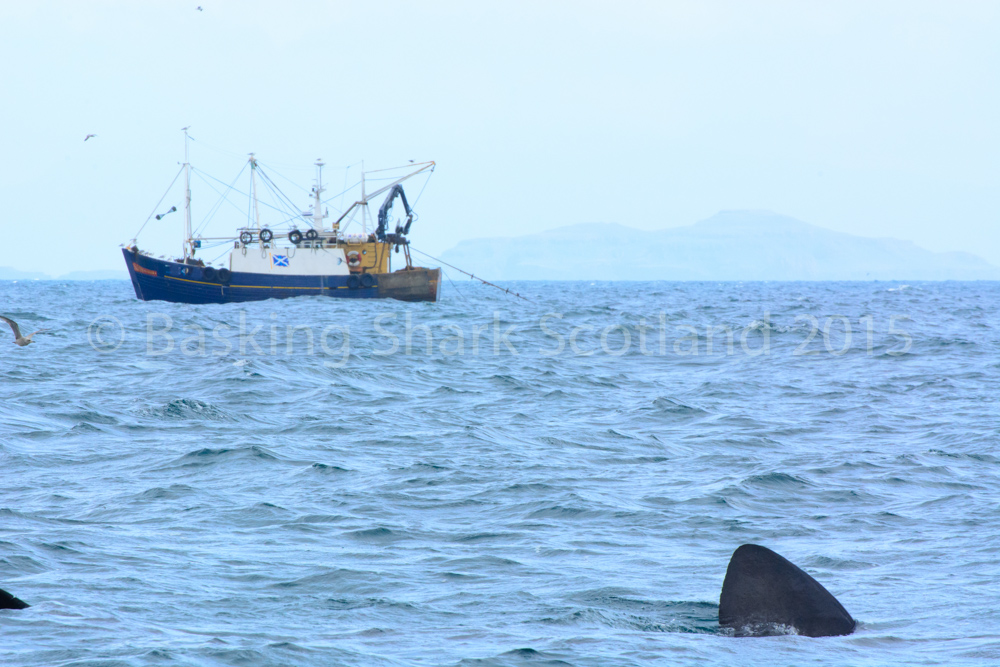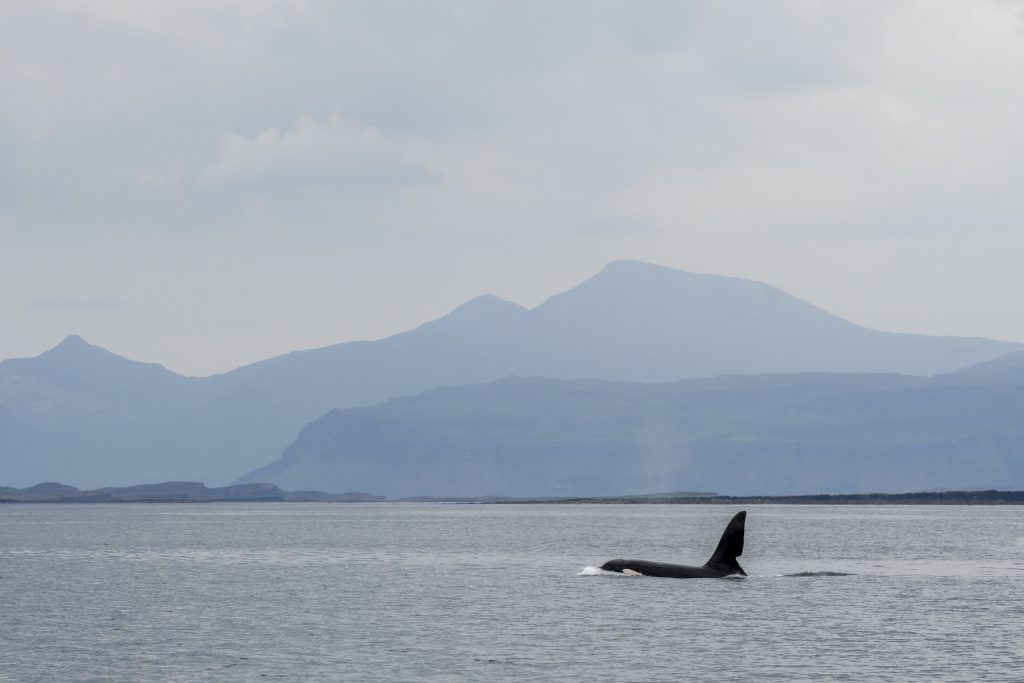
Do Basking Sharks Have Predators?
Sep 29 2023

Do Basking Sharks Have Predators?
A question we are often asked is, do basking sharks have any natural predators? As these giant sharks are endangered, it is reasonable to wonder if there is anything other than ourselves contributing to their demise. There are not any animals recognised that are known to prey on basking sharks regularly, but they do spend a lot of their lives in the deep sea and we know very little about their time here.
We do know that basking sharks have been hunted by humans since records of their existence began. Commercial fisheries for the basking shark were prolific in Scotland, Ireland, Norway and North America. The latter even hosting an extirpation programme, seeing these animals as pests, and awarding bounty for their kill. Unsurprisingly the basking shark population has fallen dramatically in the North East Atlantic due to the success of these operations. Basking sharks were largely targeted for their oily livers, typical of sharks who spend a lot of time in the deep sea, these livers comprise up to one third of their body size. Squalene which is found in the liver was used for many applications, and can still be found today in cosmetics, pharmaceuticals and engineering industries.
Whilst basking sharks are protected in Great Britain and Ireland we know they travel outside of our waters, and for huge distances. There are also populations of basking sharks in the southern hemisphere where there is still a large amount of shark finning, as there is still a highly lucrative market for this in Asia. Once sharks are in international waters they are under threat from unregulated fishing practices, entanglement, ship strikes and bottom trawlers.
So are there any other animals which prey on basking sharks?
Here in the Sea of the Hebrides, there are no large natural predators of basking sharks. There are orca in our waters, but unfortunately they are in very small numbers. The west coast community of orca, officially numbering 8, but thought now to only be 2 males remaining, are an ecotype of orca which specialise in feeding on marine mammals. The other orca ecotype, which are typically found further north in Scotland and the Arctic Circle, are fish specialist, feeding on herring. Orca ecotypes differ in morphology and behaviour, their teeth vary to suit their different diets. There are known ecotypes of orca which are specialist shark feeders. Off the coast of North America there are offshore orca pods which specialise in shark, they were unknown until relatively recently due to their distance offshore. These orca have worn down teeth characterised from the tough skin of the sharks they are feeding on, it is possible these orca could come into contact with basking sharks but there are no known cases of that happening in North America. This has however been witnessed in South Africa. This year fascinating research was released about a duo of orca who had learnt a specialised technique of flipping sharks into tonic immobility and removing their liver, this has now been filmed happening to great white sharks in this area. The orca pod have managed to learn this behaviour and now there are a larger number hunting sharks in the waters of False Bay and Gansbaai. These areas were known as the great white shark capital of the world, but are now seeing the sharks less and less, as they seem to be avoiding the areas where the orca are actively hunting. The same orca were also seen removing the livers of seven gill cow sharks, another species which was commonly sighted in that area, and there are also reports from a tour boat of an orca removing the liver of a basking shark in South Africa.
We do know that basking sharks do travel down this coast, but there is not much data on sightings from basking sharks in this area. This novel orca behaviour has only been known in recent years, and until recently no orca were seen in this part of the coast at all. Could it be that change in food availability offshore has driven these orca closer to land to hunt? Were these orca hunting sharks offshore before coming into coastal waters? We simply don’t know – but it does seem something is amiss and it is having a huge affect on the local marine environment.
It seems orca are not the only cetaceans to have a taste of the basking shark. Historic whaling records have also found that sperm whales have been found with shark in their stomachs on several occasions, including a small basking shark and other deepwater species!
As basking sharks only spend a fraction of their lives with us here in Scotland, we still have a lot to learn about them!


